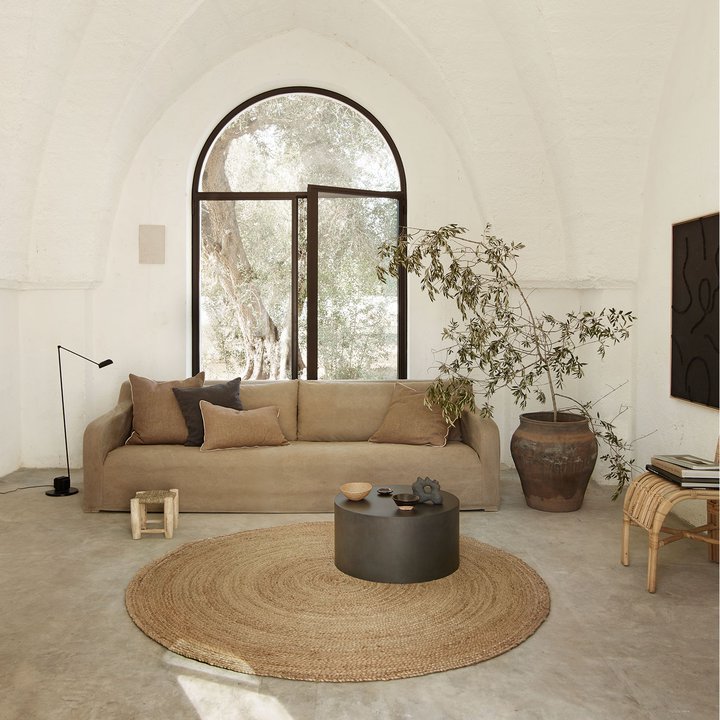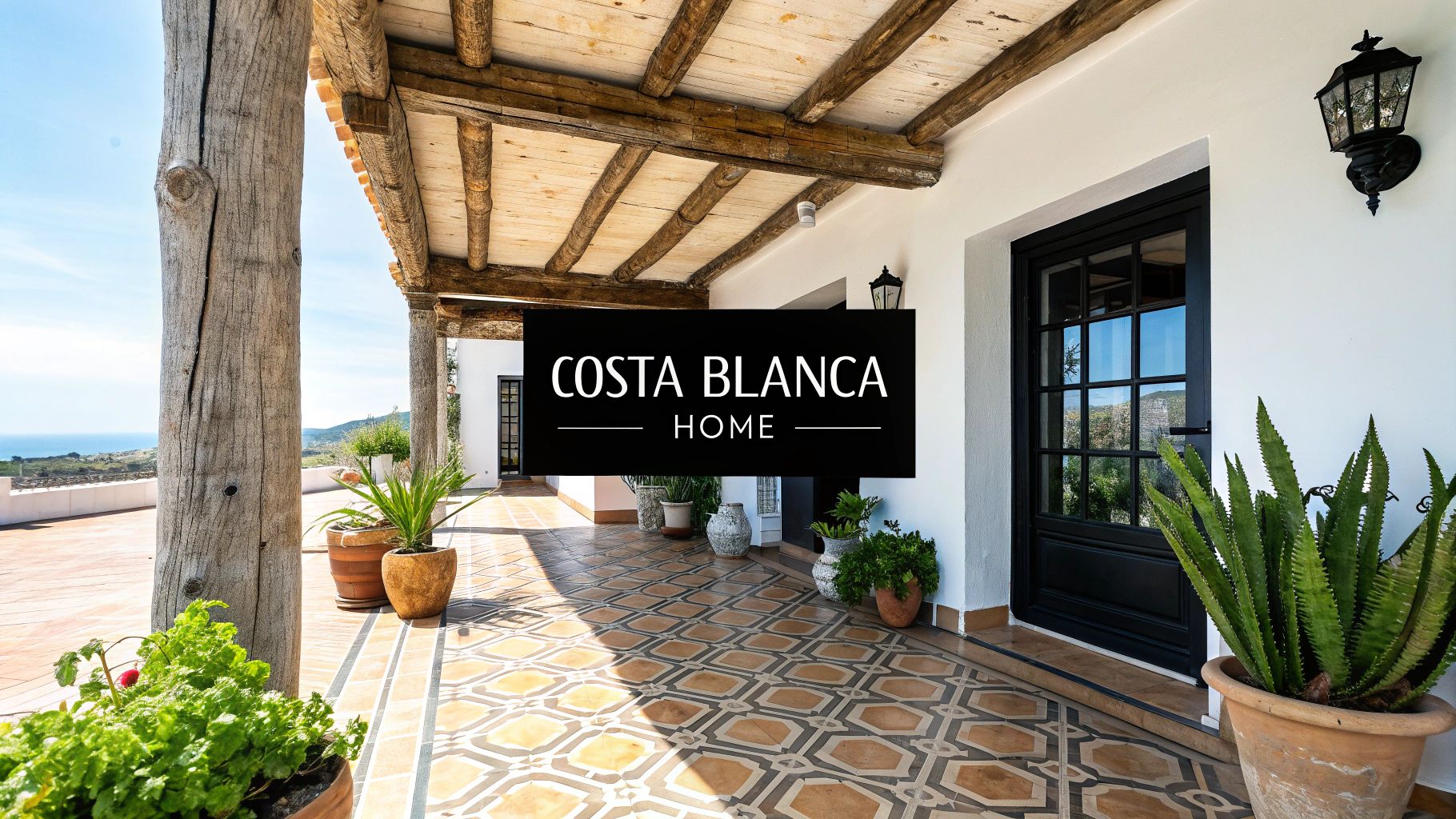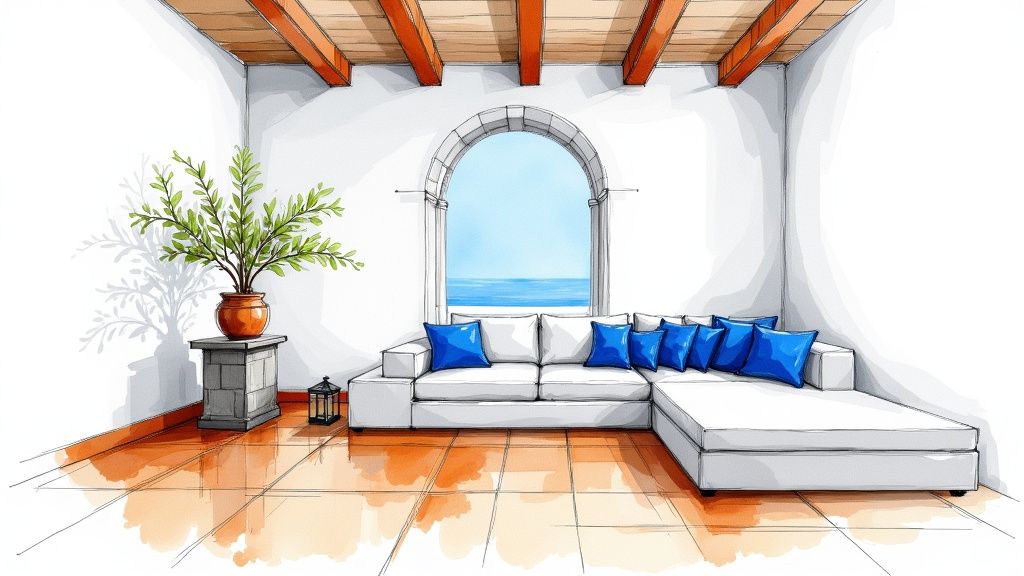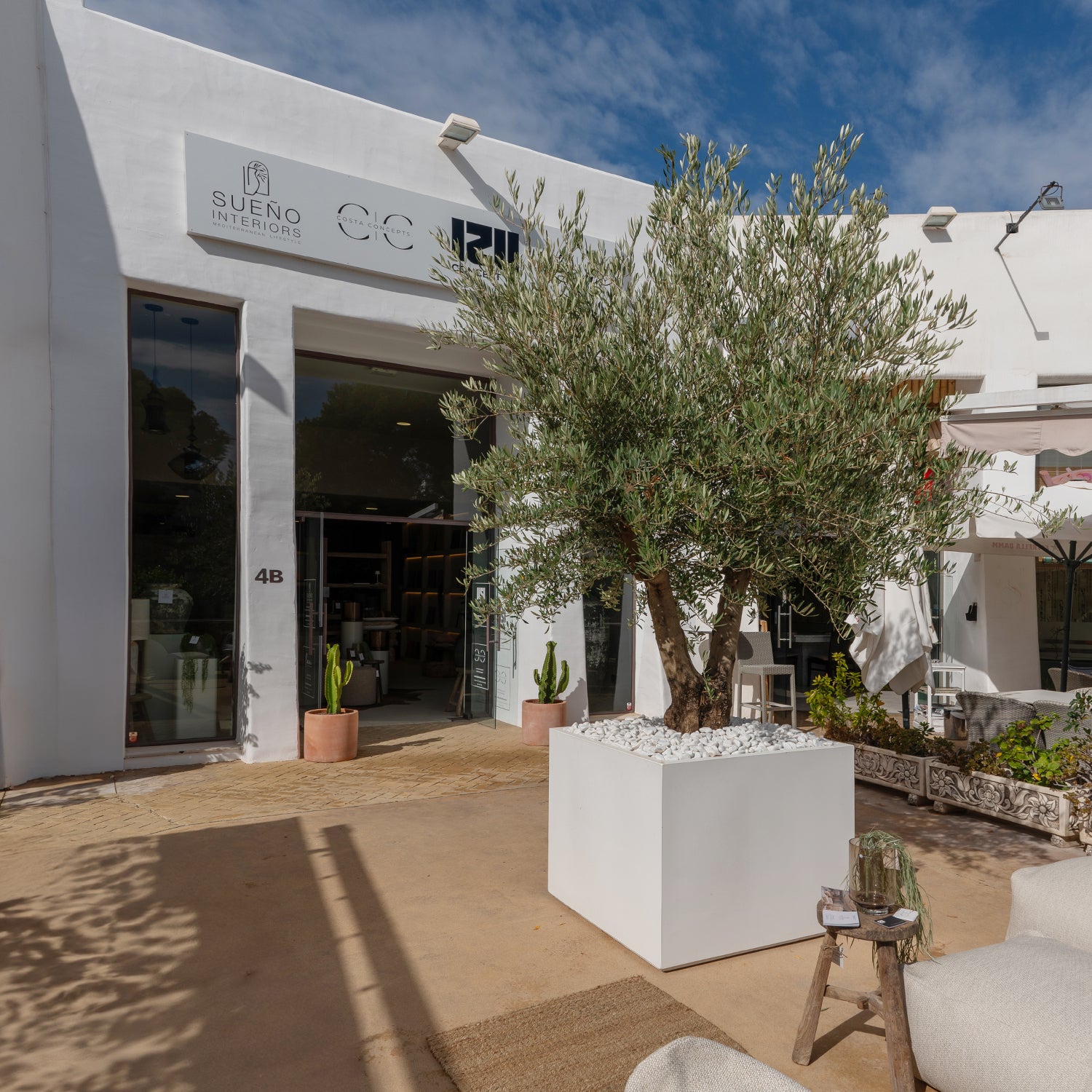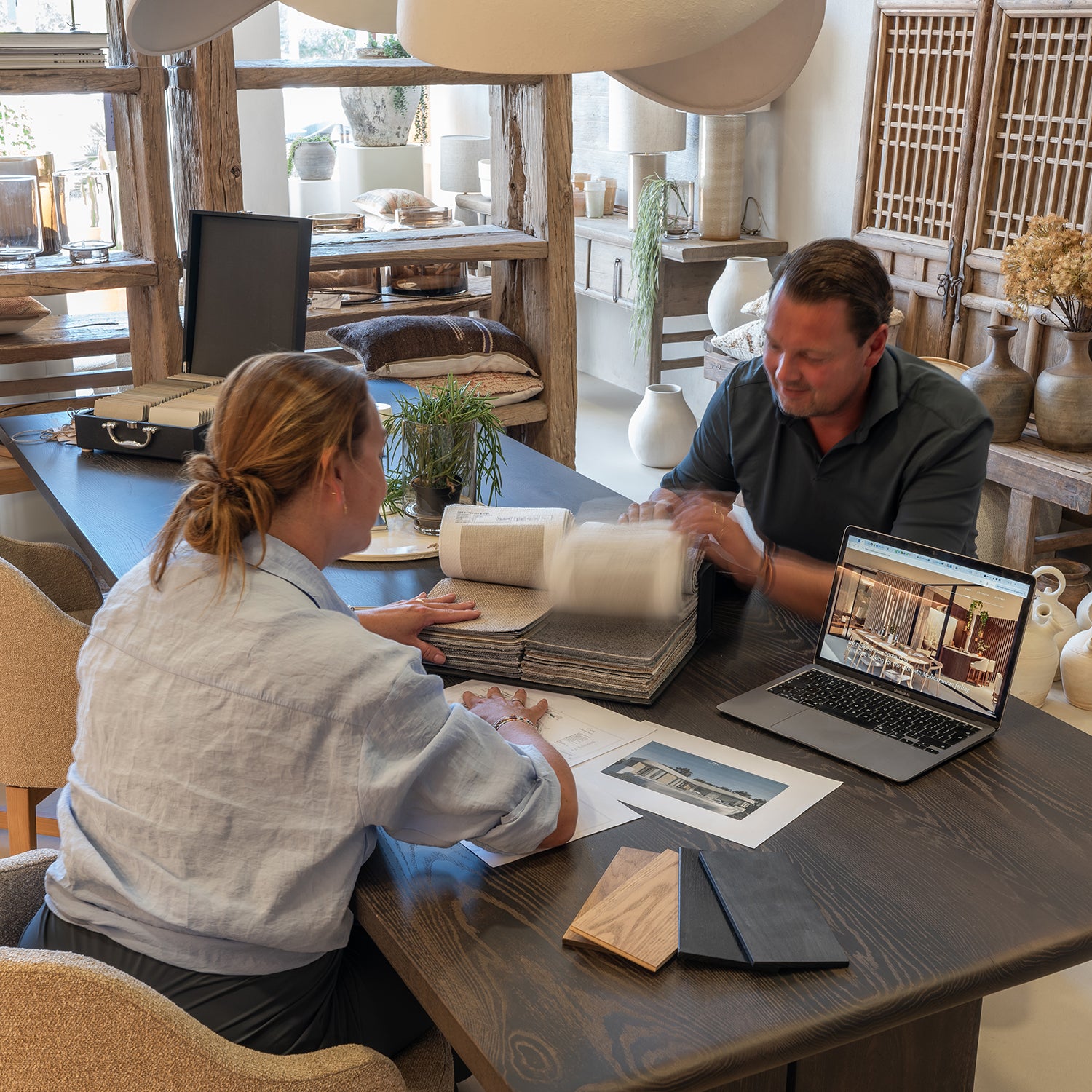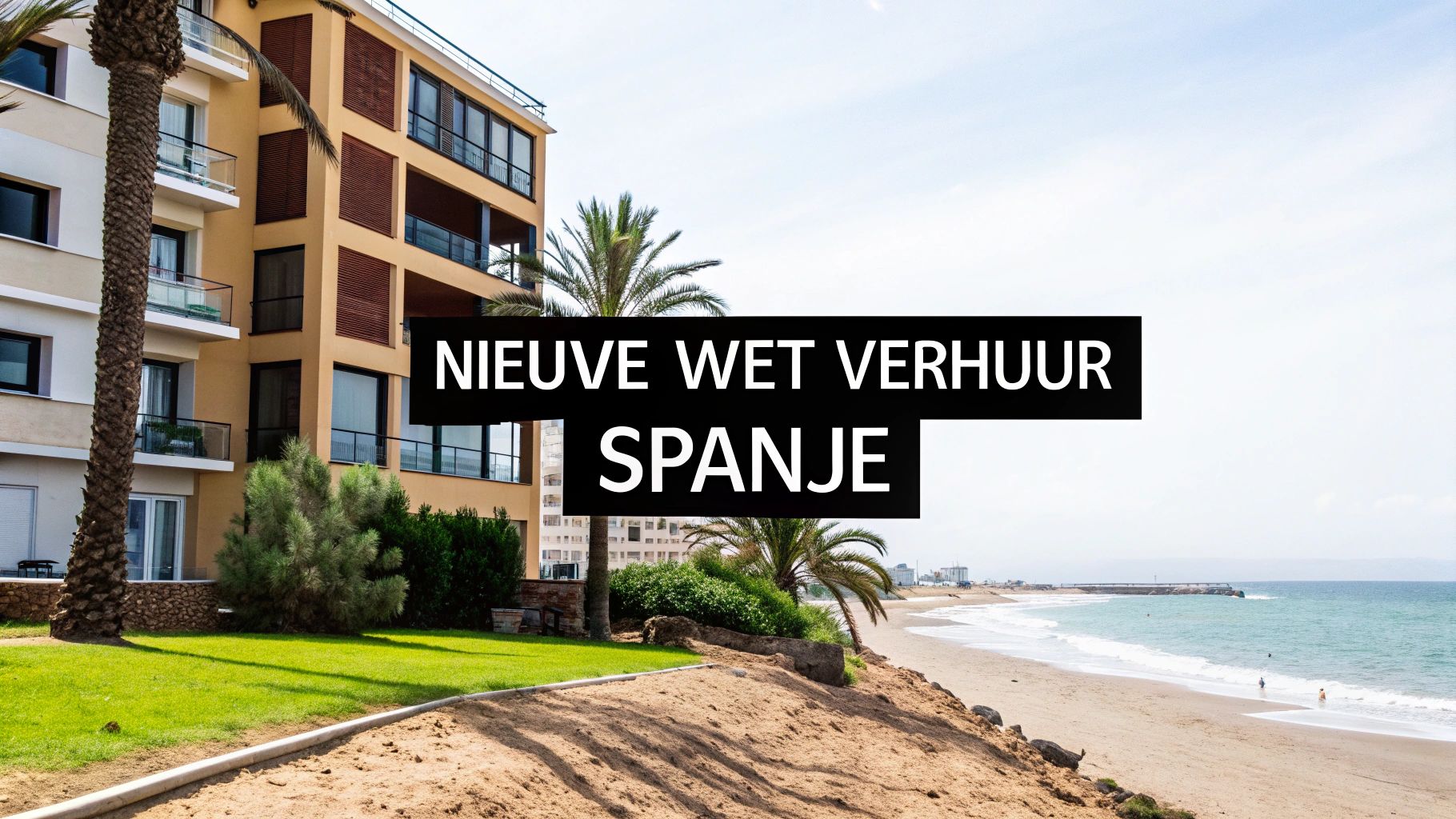
New Spanish rental law: a complete guide
The new rental law in Spain is shaking things up for property owners. The gist? If you want to rent out your apartment for tourism, you now need approval from at least 60% of the Homeowners' Association (HOA). This regulation is a direct response to the inspired pressure on the Spanish housing market, aimed at finding a better balance between tourism and the quality of life for permanent residents. Feel free to visit our studio in Moraira to discuss what this means for your specific situation.
What the new Spanish rental law means for you
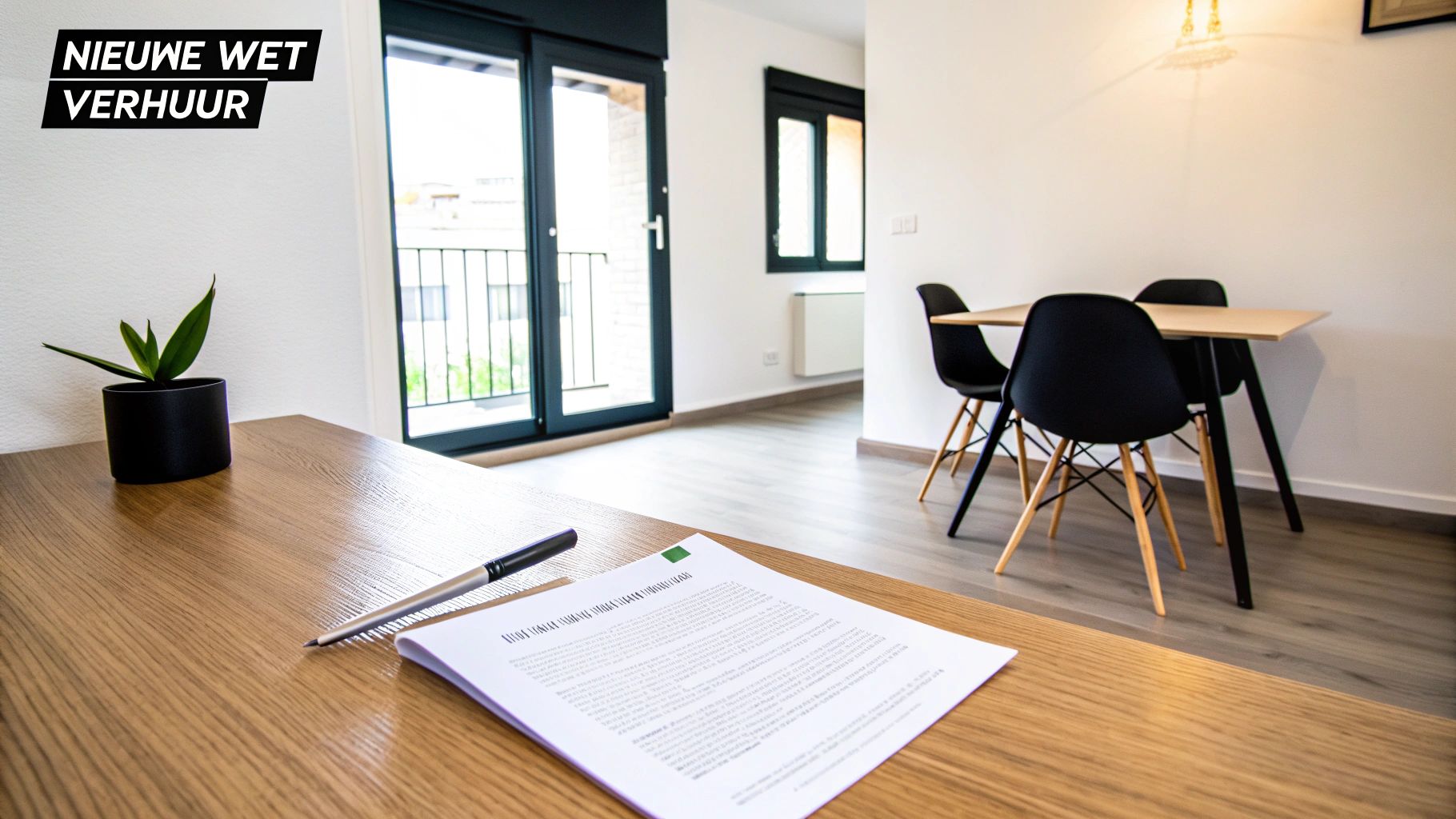
The Spanish real estate market is constantly evolving, and the rules are changing along with it. This latest amendment, the new Spanish Rental Law, has a significant impact on anyone who wants to rent their property to tourists. Previously, owners had relatively independent decision-making power, as long as they met the regional licensing requirements.
However, the new law adds a crucial step: the community, the homeowners' association (VvE), gains a decisive vote. This is no minor administrative change; it's a fundamental shift that alters the power dynamics within residential complexes.
Who feels the impact of this law?
This law specifically targets homeowners within a community with a homeowners' association (VvE), such as apartment complexes, who wish to use their property for short-term tourist rentals. This includes rentals to vacationers via platforms like Airbnb or Booking.com.
It's important to note that this law does not apply to:
- Long-term rentals (contracts of one year or longer).
- Medium-term rentals, for example, to winter visitors or digital nomads.
- Owners who already held a valid tourist rental license before the law came into effect.
The crux of the matter is simple: the community now has the right to decide whether tourist rentals are permitted. This protects the residential, peaceful character of buildings.
To clarify the differences, we've created a summary table. For more insights into the Spanish real estate market, you can also read our other articles. What is the impact of this law?
Comparison of old and new tourist rental regulations
This table provides an overview of the main changes before and after the introduction of the new tourist rental law in Spain.
| Aspect | Oude situatie | Nieuwe situatie |
|---|---|---|
| VvE toestemming | Meestal niet nodig, tenzij de statuten anders bepaalden. | Verplichte goedkeuring van 60% van de VvE-leden. |
| Invloed van buren | Beperkt. Klachten over overlast waren de enige optie. | Buren hebben nu een directe, democratische stem. |
| Focus van de wet | Vooral op regionale licenties en belastingafdracht. | Focus op leefbaarheid en controle door de gemeenschap zelf. |
This basic knowledge is essential for understanding how the market is changing. In the following sections, we'll delve deeper into the reasons behind the law and what it means in practice for applying for permission. Do you have questions about your specific situation? Feel free to visit our studio in Moraira for personalized advice.
Why Spain is changing its rental rules
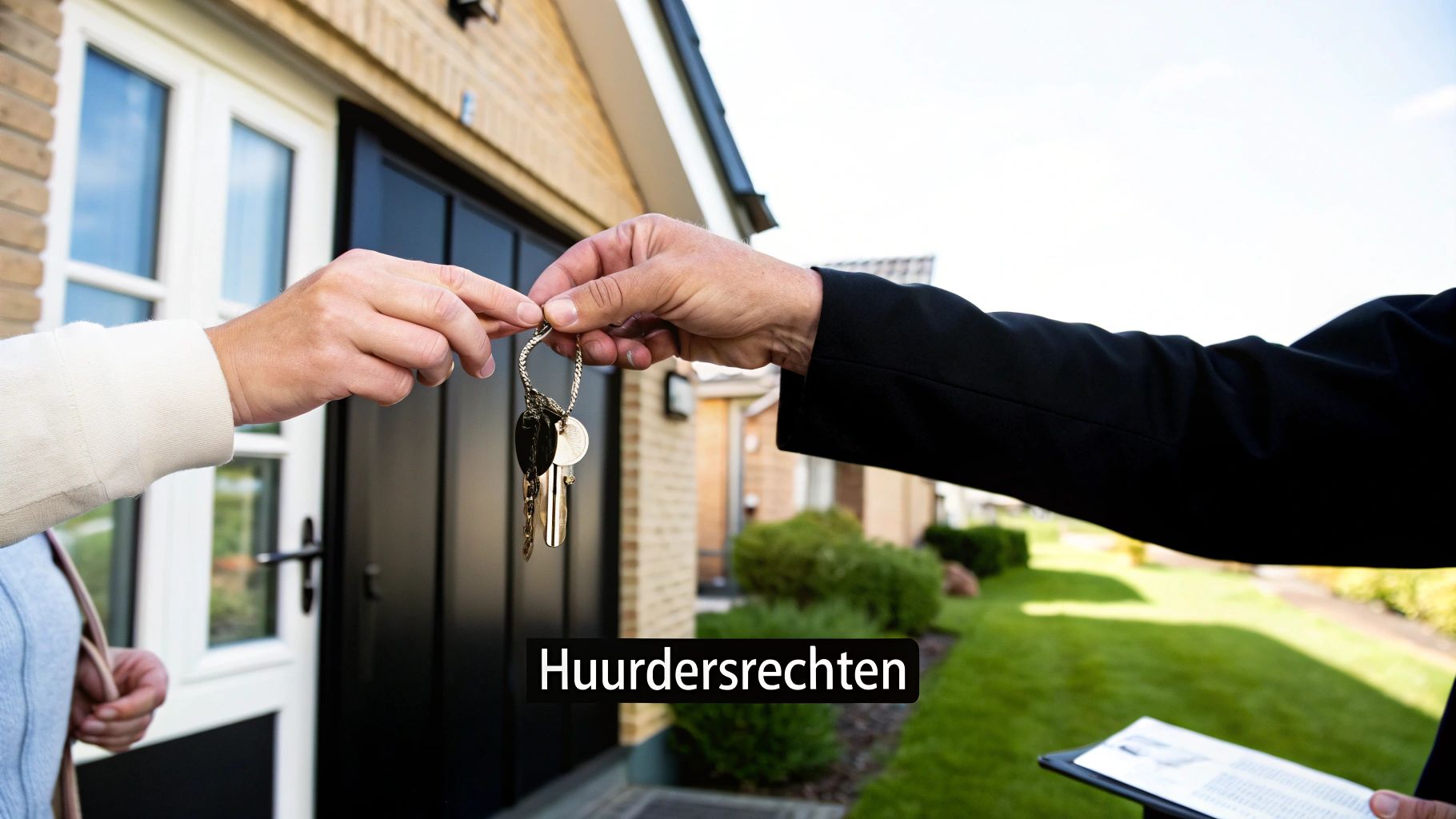
The Spanish government didn't just pull the rental regulations out of thin air. These changes are a direct response to a problem that has been brewing for some time: a housing market buckling under pressure, especially in popular coastal areas like the Costa Blanca. For many Spaniards, finding affordable, permanent housing has become a real headache.
The culprit? The explosive growth of tourist rentals is a major factor. Thanks to online platforms, it has become incredibly easy for homeowners to rent out their apartments to holidaymakers for short periods. This makes sense, as this often yields more than traditional, long-term rentals.
The impact on the local housing market
This shift had a dual effect. On the one hand, more and more homes disappeared from the regular rental market. The result was a shortage, with sharply rising rents as a logical consequence. For first-time buyers, young families, and even seasonal workers, it became nearly impossible to find affordable housing in their own region.
On the other hand, it changed the entire atmosphere in many residential complexes. Apartment buildings, originally intended for permanent residents, slowly but surely transformed into a kind of disguised hotel.
The constant flow of changing tourists, with a completely different rhythm and lifestyle, regularly caused disruption. This clashed with the permanent residents who were simply looking for peace and quiet and a stable living environment.
Looking for a new balance
With the new Spanish rental law, the government is now attempting to restore the balance. The goal is absolutely not to stifle tourism – a crucial driver of the economy. Rather, it's to regain control over the proliferation of unregulated holiday rentals. The focus is on restoring the balance between the economic interests of landlords and the right to a pleasant and affordable place to live for local residents. You can read more about the Spanish real estate market in our market news.
By giving the Homeowners' Association (VvE) a decisive vote, control is effectively returned to the community itself. They can now decide together whether the character of their building should remain residential, or whether tourist rentals align with their vision. This is an important step in stabilizing the local housing market and guaranteeing its quality of life. Wondering what this means for your property? Feel free to visit our studio in Moraira for a personal consultation.
De VvE-goedkeuring: een cruciale nieuwe stap
The most significant change in the new Spanish rental law is undoubtedly the need for approval from the Homeowners' Association (VvE). While owners used to hold the reins, decision-making power now largely rests with the community. This truly represents a fundamental shift in how tourist rentals operate.
This rule was created to give neighbors a direct voice in what happens in their building. It's a way to protect the residential character of complexes and ensure that permanent residents remain comfortable. For anyone who wants to start renting now, this is the first and most important hurdle to overcome.
De 60%-eis onder de loep
De kern van de nieuwe regel is simpel: minimaal 60% van de VvE moet akkoord gaan voordat je jouw woning mag inzetten voor toeristische verhuur. Dit is geen formaliteit, maar vereist een officiële stemming tijdens een VvE-vergadering.
Een paar belangrijke punten hierover:
- Wie stemt er mee? Alleen de officiële eigenaren van de woningen in het complex. Huurders of andere bewoners hebben geen stemrecht.
- Hoe werkt de stemming? De stemverhouding is bijna altijd gebaseerd op je eigendomsaandeel (de coeficiente de participación). De eigenaar van een groot penthouse heeft dus vaak meer invloed dan de eigenaar van een kleine studio.
- Wat gebeurt er daarna? De stemming en de uitslag moeten correct in de notulen worden opgenomen. Vanaf dat moment is de beslissing bindend voor alle eigenaren.
Deze nieuwe wet is een directe reactie op de groeiende toeristische druk in kustgebieden. Vanaf 3 april 2025 is deze wetgeving van kracht, met name in regio's als de Comunidad Valenciana, Costa Blanca en Costa del Sol. Wil je de details weten, lees dan meer over de specifieke nieuwe wetgeving voor toeristische verhuur in Spanje op spaansedroomhuizen.com.
Een cruciaal detail: de wet heeft geen terugwerkende kracht. Had je vóór de ingangsdatum al een geldige verhuurlicentie? Dan hoef je niet opnieuw om toestemming te vragen. Je zit dus veilig.
Deze afbeelding maakt het proces voor verhuurders onder de nieuwe regels wat duidelijker.
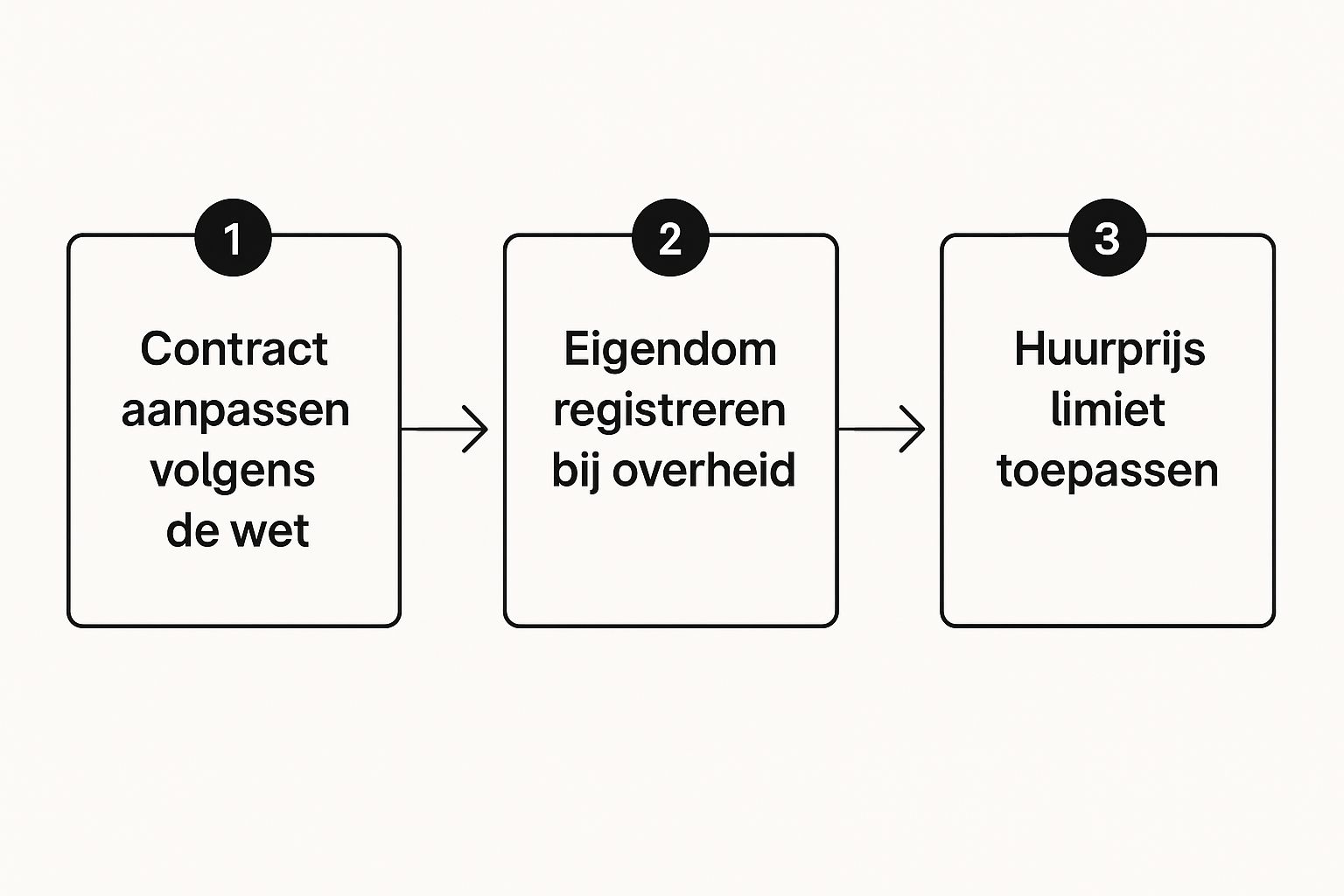
De visualisatie toont de stappen die je moet doorlopen om aan de wet te voldoen, van de juridische aanpassingen tot de uiteindelijke registratie.
Wat als je de 60% niet haalt?
Of course, it's possible that the homeowners' association (VvE) votes against the permit or that the 60% threshold isn't met. This doesn't necessarily mean the end of your rental plans, but you'll need to consider alternatives. Long-term rentals are an obvious option. But even medium-term rentals, for example, to winter visitors or expats, often fall outside the strictest regulations of tourist rental law.
It's essential to thoroughly familiarize yourself with your homeowners' association's bylaws and to engage in dialogue with your neighbors. Good communication, addressing any concerns about nuisance, can sometimes make all the difference. The regulations are complex, and the right strategy really depends on your specific situation. So, feel free to visit our studio in Moraira. Our experts are happy to help you determine the best approach for your property.
Een digitaal register: de volgende stap
Alsof de goedkeuring van de VvE nog niet genoeg was, komt de nieuwe huurwet in Spanje met nóg een administratieve horde. De overheid wil simpelweg meer grip krijgen op de toeristische verhuurmarkt. En hoe doen ze dat? Met een nieuw, centraal en digitaal register.
Deze maatregel is een flinke modernisering van het toezicht. Weg met die versnipperde administratie; hallo, helder overzicht voor de autoriteiten. Voor jou als verhuurder betekent het een extra, verplichte stap in het proces.
Wat is het Registro Único de Arrendamientos?
Zie het Registro Único de Arrendamientos als een soort digitaal paspoort voor je verhuurwoning. Het is een centrale database waarin elke toeristische verhuurtransactie moet worden gemeld. Het doel is simpel: transparantie. De overheid kan precies zien welke woningen worden verhuurd en of iedereen zich netjes aan de regels houdt.
Deze registratieplicht is vooral gericht op de verhuur via online platforms. Maak je gebruik van Airbnb, Booking.com of soortgelijke websites? Dan is deze registratie voor jou onontkoombaar.
Het register is ontworpen om de 'grijze zone' van de verhuurmarkt aan te pakken. Anoniem verhuren wordt praktisch onmogelijk gemaakt. Het zorgt ervoor dat alle partijen, inclusief de platforms zelf, zich aan de Spaanse wetgeving moeten houden.
De impact van deze nieuwe administratieve verplichting wordt steeds duidelijker. Naast de verplichte toestemming van de VvE, geldt vanaf 1 juli 2025 ook een registratieplicht voor particuliere verhuurders die hun woning via online platforms aanbieden. Dit wordt dus geregeld via het nieuwe Registro Único de Arrendamientos. Meer details over de nieuwe regelgeving en juridische uitdagingen vind je op hipestates.com.
Hoe pak je de registratie succesvol aan?
While the precise details may vary by region, the process generally follows a clear pattern. It's crucial to follow this carefully. This way, you'll avoid fines and can continue renting legally.
The steps you usually need to follow are:
Gathering documents: Make sure you have all the necessary paperwork at hand. This includes your proof of ownership, a valid tourist license, and the minutes of the homeowners' association meeting where the approval was recorded.
Submitting a digital application: Registration is done through an online portal for the relevant autonomous region. Here, you'll enter all the information about your property and your rental activities.
Costs and processing: There may be administrative fees associated with the registration. After submitting the application, you'll receive a unique registration number. You're required to include this number in all your online listings.
Navigating this administrative jungle can be quite a challenge. For personalized advice on how to optimally prepare your property for rental, you're always welcome to visit our studio in Moraira. Our experts are happy to help.
Strategieën en alternatieven voor eigenaren
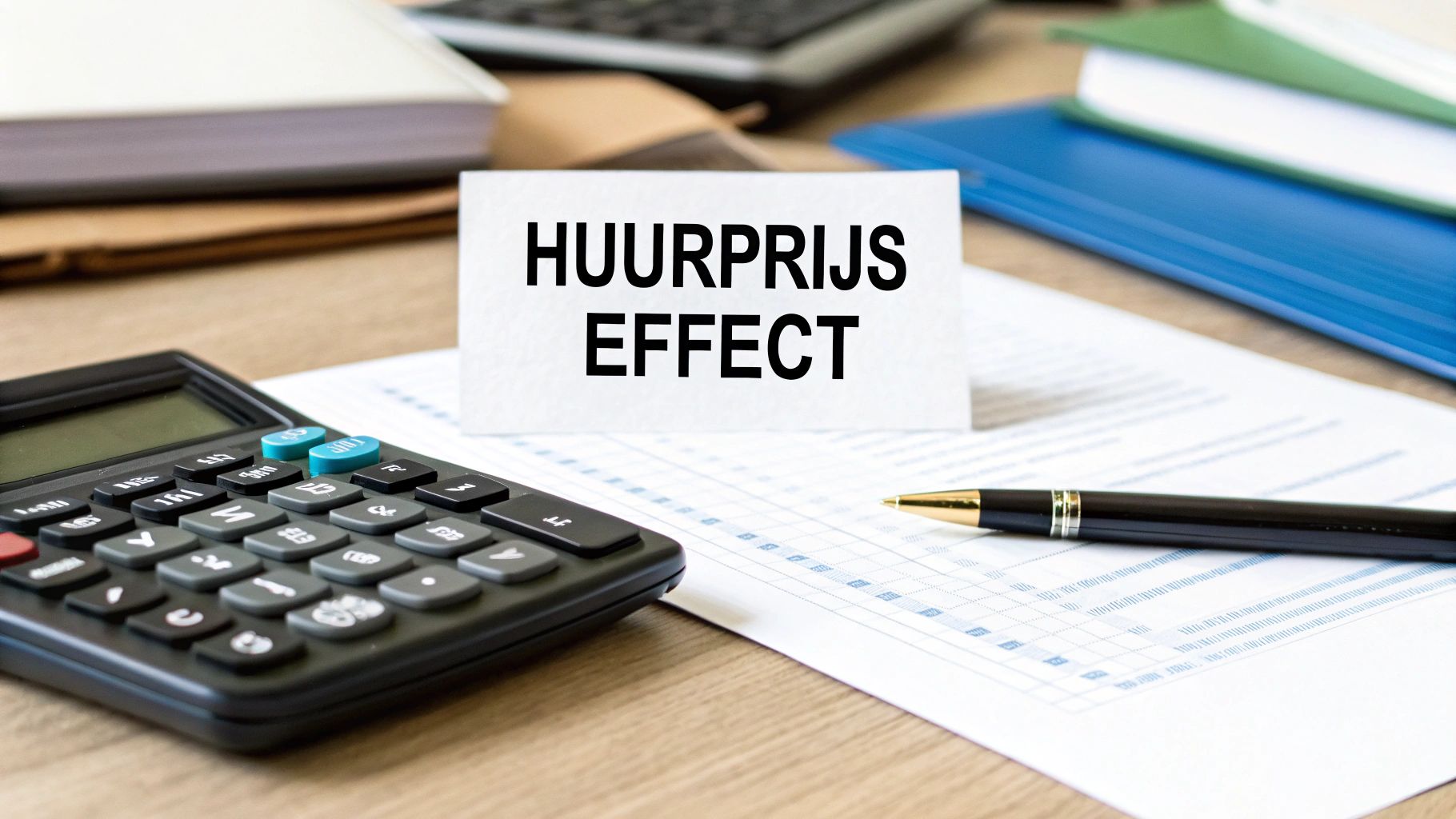
The new Spanish rental law is more than just a set of rules; it's a game-changer that forces you to rethink your investment. The stricter requirements demand a smarter, more creative approach to maximizing returns on your property. The immediate consequence is already clear: the bar for short-term, tourist rentals has been raised considerably.
This shift could split the market in two. On the one hand, there will be complexes where the Owners' Association (VvE) actually embraces tourist rentals. This could make these properties even more attractive to investors. On the other hand, many VvEs will want to preserve the residential character of their buildings. Owners will therefore have to find other ways to generate income.
De risico’s van niet-naleving
Ignoring the new legislation? That's an expensive gamble. Spanish authorities are cracking down on illegal rentals, and thanks to the new digital registry, everything has become much more transparent. The financial consequences are severe.
Fines for violating the new rental law can reach tens of thousands of euros, depending on the region and the severity of the violation. A significant risk that can completely wipe out your potential profit.
The risk is simply too great. A well-considered, legal approach is the only sustainable path to successful rentals. Fortunately, there are excellent alternatives if the homeowners' association (VvE) refuses to approve tourist rentals.
Een slim alternatief: middellange termijn verhuur
One of the most interesting strategies is the shift to medium-term rentals. Think of periods of one to eleven months. This type of rental generally falls outside the strict definition of "tourist rentals," allowing you to avoid the requirement for homeowners' association approval and the most complex administrative burden.
De doelgroep voor deze vorm van verhuur groeit hard. Wie zijn deze huurders?
- Overwinteraars die de koude Noord-Europese winters ontvluchten en voor meerdere maanden naar de Costa Blanca komen.
- Digitale nomaden en remote werkers die een comfortabele en inspirerende uitvalsbasis zoeken.
- Expats die tijdelijk in Spanje werken of op zoek zijn naar een permanente woning en een overbruggingsperiode nodig hebben.
Deze huurders zoeken een volledig ingericht, comfortabel huis en zijn bereid een goede prijs te betalen voor kwaliteit. Dit sluit naadloos aan bij de hoogwaardige inrichting die wij bij Sueño Interiors realiseren. Een prachtig interieur trekt niet alleen betere huurders aan, maar rechtvaardigt ook een hogere huurprijs.
Of je nu voor korte of middellange termijn verhuurt, de presentatie van je woning is cruciaal. Voor inspiratie kun je onze gids lezen over hoe je een vakantiehuis kunt kopen en inrichten in Javea.
Please note: regulations may vary by region and even by municipality. Due to the new Spanish rental law, personalized advice is more important than ever.
The right strategy depends entirely on your property, the homeowners' association (VvE), and your personal goals. It's a puzzle with many pieces. Feel free to visit our studio in Moraira. Our experts know the local market inside and out and are happy to help you develop the best, most profitable, and fully legal strategy for your situation.
De meest gestelde vragen over de nieuwe huurwet
Such a new law naturally raises a lot of questions. And that's understandable. To quickly provide you with some clarity, we've compiled a list of the most pressing issues. Consider this a practical guide to eliminate any remaining uncertainties.
Heeft deze wet invloed op mij als ik mijn appartement al jaren verhuur?
This is a question we hear a lot, and the answer is thankfully reassuring: no, the law isn't retroactive. Did you already have a valid tourist rental license before April 3, 2025, and was everything properly arranged? Then you can simply continue as usual.
So you don't have to suddenly request permission from the Homeowners' Association (VvE) after the fact. It is, of course, crucial that you can prove that your rental activities were fully legal and registered before that date.
Wat bedoelen ze precies met ‘toeristische verhuur’?
The law specifically focuses on what in Spain is called "viviendas de uso turístico" (tourist rentals). Simply put, this concerns short-term rentals, usually for holidays shorter than a month. The precise regulations can vary slightly between autonomous regions, so pay close attention.
An important detail: medium-term rentals are generally excluded from this. Think of a contract for a few months with an expat, a digital nomad, or someone who is coming to spend the winter. This remains an interesting and less strictly regulated alternative.
This nuance certainly offers opportunities for homeowners who prefer to circumvent the strict tourist regulations.
Wat gebeurt er als ik de nieuwe regels negeer?
Ignoring the new legislation is a really bad idea. Spanish authorities are significantly increasing their inspections, and the new digital register makes illegal rentals much easier to detect.
The fines are hefty and, depending on the violation and the region, can reach tens of thousands of euros. That financial risk simply doesn't outweigh the potential gains from illegal rentals. Fully complying with the new Spanish rental law is the only smart move.
Is investeren in Spaans vastgoed voor de verhuur nog wel een goed idee?
Absolutely, but you need to approach it differently. This new law is professionalizing the market and forcing you to adopt a smarter strategy. Investing in a complex where the homeowners' association is open to tourist rentals remains a golden opportunity. And don't forget the growing demand for medium-term housing; that's an excellent alternative with a good return.
The key to success? Thorough research and professional advice, now more than ever before. You need to know the local regulations and the specific conditions of a homeowners' association before you sign.
The new regulations make everything a bit more complex, and a well-thought-out rental strategy is essential. That's why expert guidance is so important. Feel free to visit our studio in Moraira to discuss the options that perfectly suit your investment goals. Our experts are happy to help you navigate the new reality of the Spanish rental market.
Are you planning to furnish your Costa Blanca home, whether for rental or personal use? At Sueño Interiors, we're happy to help you create a harmonious and inviting interior that's completely contemporary. Visit our concept store in Moraira or schedule an appointment via https://www.suenointeriors.com.

